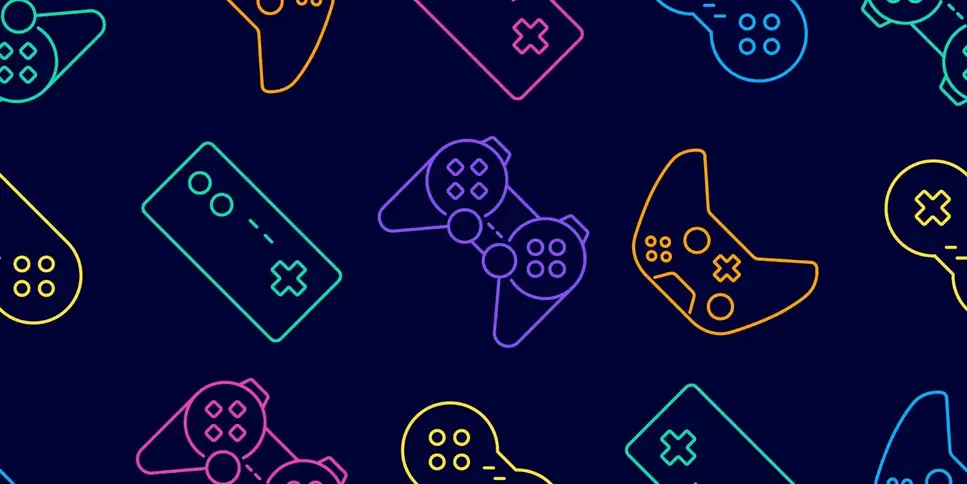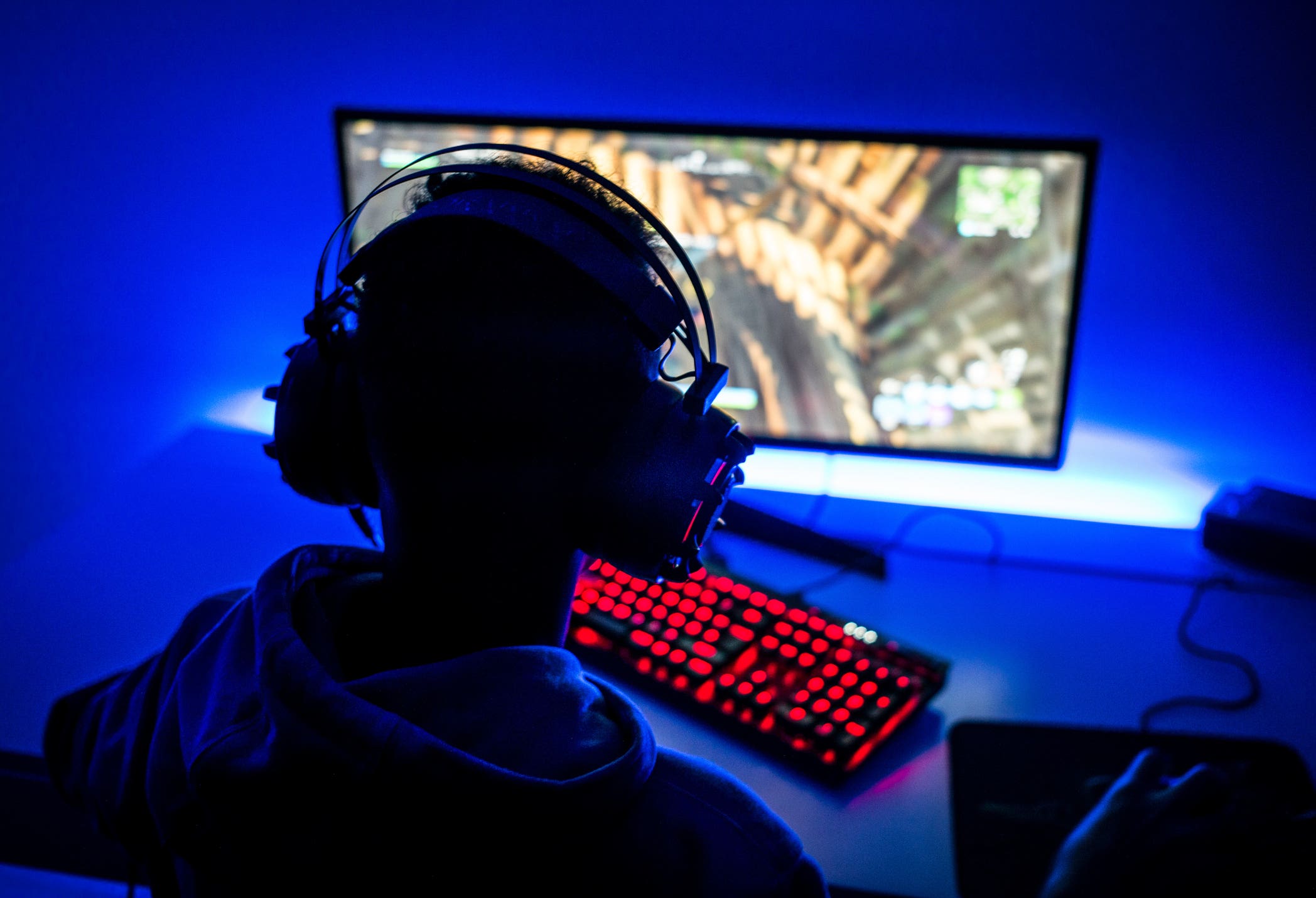Ava와 채팅 - AI 비즈니스 컨설턴트
안녕하세요. 저는 당신의 비즈니스를 강화시키도록 도와주는 AI 가이드 Ava입니다!
이미 사업을 운영하고 있거나 사업을 새로 시작하는 것을 바라신다면 저는 AI 기반 프리랜서를 사용하여 고객님의 비전을 현실로 바꾸는 데 도움을 드리고자 왔습니다. 비즈니스 목표를 공유하면 재능 있는 프리랜서들이 입찰할 수 있는 프로젝트를 함께 만들 수 있습니다. 비전을 현실로 만들어봅시다!
사업이 있습니다
나는 사업을 시작하고 있어요
대화를 이메일로 보내는 중에 문제가 발생했습니다. 나중에 다시 시도 해주십시오.
한 시간에 한 번만 대화를 저장할 수 있습니다. 나중에 다시 시도 해주십시오.
대화가 너무 짧습니다. 저장을 하고 싶으면 Ava와 계속 채팅하세요.
How to build a game for console or PC
If you're looking to build an XBox, Playstation or PC game, first you have to build a team. We'll show you which skills you'll need to hire
2020. 3. 22. • 6 분 읽을 거리
G
Closed User
클립보드로 복사하는 과정에서 문제가 발생하였습니다. 고객님의 권한 정보를 조정하신 후에 재시도하여 주시기 바랍니다.
클립보드로 복사되었습니다.

Every skill you need to build an incredible video game
Video games sure are fun things to play, but don't let their lighthearted nature fool you. Crafting one is serious, serious business. This is especially true if you want to make an actual good one that's after critical acclaim – a feat which will “level up” this process to be even more intensive and time consuming. Basically, it's tough. But after spending 12 years in the industry, we can give you an expert guide on what's involved
What's possible
When large, multi-million dollar-making game studios decide to make their next title, they start by building a sizable team. We're talking dozens to hundreds of talented individuals. Everybody is an expert in their field, too; a small but specialized cog that can make a virtual world come to life. Mind you it also has to be noted that there has been an indie developer boom in the last decade. Small garage-based creators with especially great ideas have managed to whip up less-than-AAA games that may be more modestly priced but have nevertheless gone on to rake in huge profits.
Mapping out an idea
The first phase of development is conceptualizing. There are a lot of questions that need answering before you put finger to keyboard. What sort of game are you trying to make, genre-wise? Gaming has a number of pretty well established styles of games, the most popular being first-person shooters, action-adventure, role-playing games, simulations, rhythm games and more. However, you might not want to pigeon hole yourself into these. Perhaps your idea could be a hybrid of the above, or an entirely new sub-genre that nobody has yet considered. Once you've done that, you need to make a decision on the game engine you'll go with...
Keeping it 2D and old school
A further consideration: is your game going to be 2D or 3D? Because that extra dimension means a heck of a lot more complexity in almost every phase after this point. If you're looking to keep things simple, a popular and thoroughly decent 2D game engine to look into is Game Maker. It's been responsible for breakout indie success stories like Spelunky, Undertale and INK.
A happy middle ground
If your design is more 3D centric (or you're thinking a 50-50 that's 2.5D,) Unity is probably the better option to go with. Along with allowing you to export to a variety of platforms (for free,) Unity is a proven producer of its own range of success stories. Games like Hearthstone, Superhot and Kerbal space program spring to mind, plus it's a darling for hundreds of mobile developers who have made it big.
Going 3D advanced
Last but certainly not least, we have the venerable Unreal Engine. Being the most advanced of this triumvirate, it's certainly not recommended as the first port of call for absolute beginners. All that being said, if you have a whizzbang coder (and a decent team behind them) this 3D producing powerhouse has been known to churn out some of the finest AAA games in recent memory. The current iteration (Unreal Engine 4) is responsible for top-sellers like Street Fighter V, Borderlands 3 and Days Gone.
Building a team
Once you've sat down and figured out the framework of your game — genre, main gameplay mechanics, etc — it's time to flesh out those bare-bones further with talented individuals. Here are some important cogs you will need in your machine:
Writer
If your vision has a heavy narrative slant, you'll need to get a freelance writer. They can help you map out the overarching tale of your interactive experience; the hero's journey from opening intro to end credits. Obviously, how many words you'll need is going to vary greatly depending on the run-time of the game (a small indie title might be no longer than four hours while an RPG could run into triple digits) and whether or not there is dialogue.
VO and sound design
Which, of course, brings us to the topic of audio. If you want your dialogue spoken, you're going to need somebody with the verve to deliver them, not to mention an audio specialist who knows how to record and mix it with your ever-growing library of sound effects. Look for a freelance voiceover artist and a freelance audio engineer. Sound effects might be drawn from a library of pre-existing (non-royalty-free samples) or you could hire a foley artist to concoct unique ones for you. Lastly, you'll need a score plinking away in the background, which means a musician who knows their way around an audio production suite like Cubase or the like. The deep pocketed might also consider a small group of musicians or a local orchestra.
Concept artists
Before you put hand to mouse you'll need to do a pre-production process that effectively storyboards the game. And we do mean everything. Every playable character, baddie and incidental NPC that will play a role. Every shot of a non-interactive cutscene. Every inch of a level or environment, not to mention every single asset (read: a prop) dotted around it. The more your vision is sketched out in black and white, the easier it will be for everybody to be on the same page as to the intent and tone of the game. For this task, you'll want to find a freelance illustrator.
3D/2D artists
From these sketches your team of artisans can manufacture the assets you need, the building blocks of a world that could be 2D side-scrolling, or a full 3D sandbox that stretches to some unknown virtual horizon. The bigger and more complex the assets, the more people and time you'll need. 3D assets in particular need to be modelled, textured and rigged to a skeleton for the next person in the chain. For this task, you'll need a freelance graphic designer. If you're going 3D, you'll (obviously) need a designer talented at 3D design.
Do the locomotion with animators
Animating 2D characters is, once again, the easier time here. You simply create a series of sprites to achieve the illusion of motion, like those cel-based cartoons from yesteryear. 3D gets considerably more complex as you have to create a whole series of reaction animations to player input. For example, reloading a gun, a death throe, or an environmental element reacting to player stimuli. This where an animator comes in, or you can try your luck with a physics engine that can simulate the reactions for you. Which, in turn, would require a …
Code wizard
Arguably the most important person on the team (aside from the intern who keeps them supplied with Red Bulls) is the coder. They're the linchpin behind the curtain, linking all of the visual and auditory elements into what is essentially the logic of your little world. If X happens, then Y occurs and then we have Z, basically. How complex their job is depends on the features you're after. Once again, 2D is at the lower end of the spectrum while things like 3D sandboxes and multiplayer integration exists on the considerably more costly and difficult end. For console and PC games, your game developer can use scripting languages in Unity or Unreal. Or, if they wanna do things the hard way, they can code it in C++. That's the default language for most consoles.
Final stages
Once you've managed to wrangle together the above professionals, possibly into some sort of dysfunctional family, what next? Quite a few things. Firstly, no game ever crafted by the hand of man ever finished a development cycle without a bug. In fact your project will have hundreds of them. Possibly too many to fix; you'll need to squash the more egregious ones and hope players don't hit upon (or can live with) the ones that remain. Do that, and you can then deploy your masterpiece onto the platform of your choice. Phase 3: profit. Hopefully by now you can see that the average video game is quite a complex undertaking But the good news is that you're spoiled for choice when it comes to finding and hiring the freelancers you need to turn your vision into reality!
어떤 유형의 일을 처리하려고 하시는지 알려 주십시오.
고객님의 프로젝트명을 입력하여 주십시오.
관련 스토리
고객님의 프로젝트를 도와 드릴 저희 기술 부조종사팀과의 대화 시작
고객님 맞춤형으로 추천해 드리는 게시글

C++ is the best programming language for games because of the large body of knowledge and frameworks built around. Here's why it's special.
10 min read

You may have built some amazing software, but how do you get the word out quickly? We'll teach you how to effectively market your software in 2020.
17 min read

Python game development has made lots of strides in recent years. Learn how to work with Python gaming frameworks to create you next game!
7 min read

Remote work is becoming the norm for companies globally, especially in the wake of Coronavirus. Learn how to get the most out of remote workers
6 min read
감사합니다! 무료 크레딧을 신청할 수 있는 링크를 이메일로 보내드렸습니다.
이메일을 보내는 동안 문제가 발생했습니다. 다시 시도해 주세요.
미리 보기 화면을 준비 중...
위치 정보 관련 접근권이 허용되었습니다.
고객님의 로그인 세션이 만료되어, 자동으로 로그아웃 처리가 되었습니다. 다시 로그인하여 주십시오.




